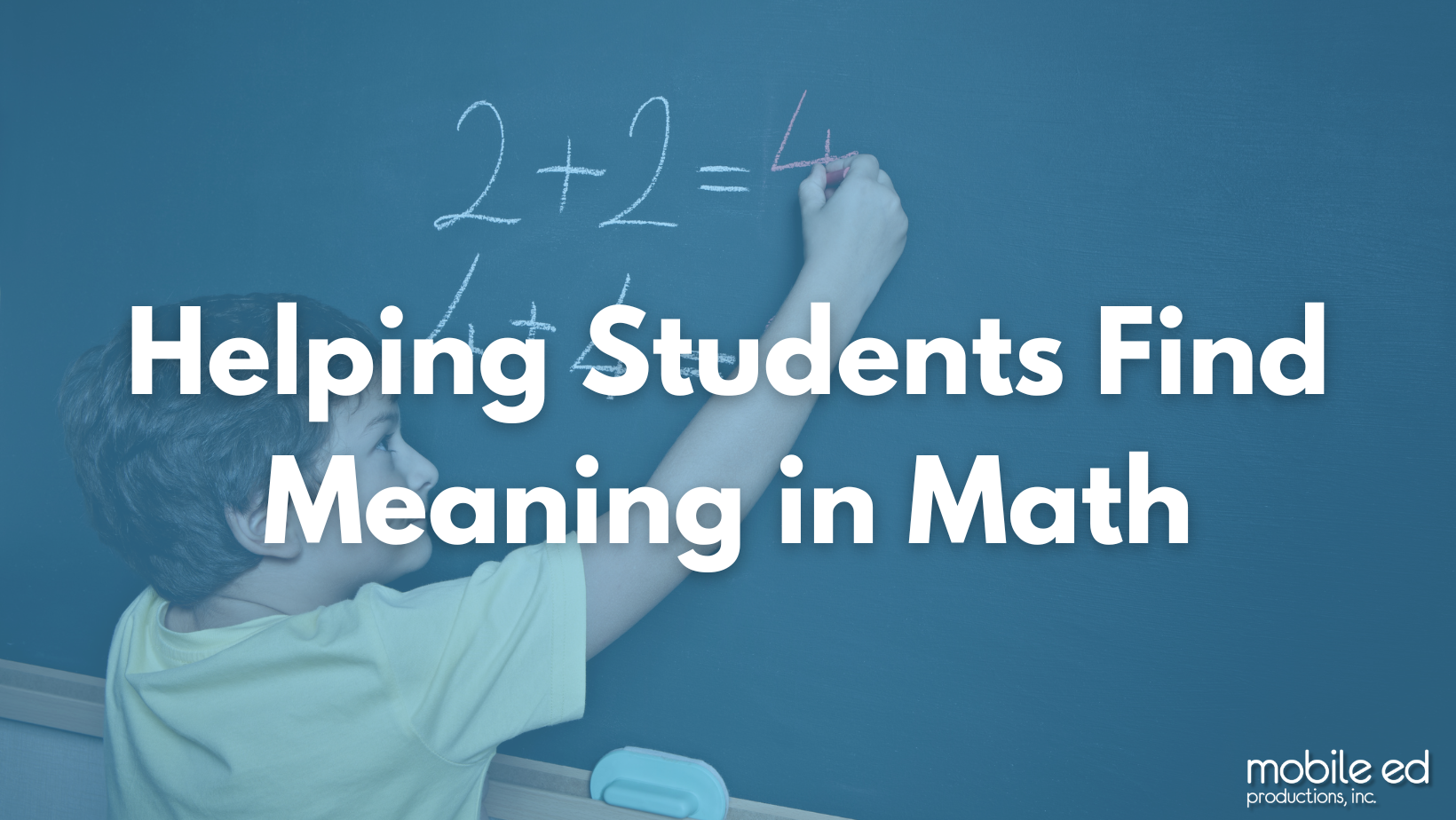Math is a challenging subject for many of our students. Perhaps it's not the memorization, formulas, or fractions that are tripping up our students but their own attitudes toward it. In this blog post, Mobile Ed explores why students have negative mindsets toward math and what educators can do about it.
April is Math Awareness Month! Math Awareness Month originated in 1986 as Mathematics Awareness Week by President Ronald Reagan. After seeing rates of study decline in STEM fields, he set out to encourage youth to pursue math education. The Mathematics Awareness Week was a tool to remind Americans of its relevance and importance in our society.
Since then, Mathematics Awareness Week turned from a week-long celebration to a month-long one. Events happen at the state, national, and community levels to help spread the word on the significance of mathematics. April is the perfect time to reexamine our math lessons to make them engaging, interesting, and meaningful for our students.
Why Do Students Struggle to Enjoy Math?
There are several factors that could be hurting your student's experience with Math. Unfortunately, many of these factors are outside factors such as language barriers, absenteeism, and family issues. These factors are simply out of our control as teachers. Then there is the matter of learning differences inside our classroom. Each of our students is starting in a different place and learning in a different style. This could be working negatively against some students who need support in different ways. In addition, there are physical and mental disabilities that could affect a student's experience in math.
Hurdles faced by our students in their personal lives, poor experiences of always getting the answer "wrong", and the common notion that "math is hard" may be affecting our students' learning more than we know. Low self-confidence and a belief that they lack understanding are strong roots for this struggle with the subject. One study finds that negative perceptions toward a subject begin in elementary school and will continue into secondary grades.
But research has found that the better the attitude the student has toward a subject, the better their grades. So how can we change the narrative of self-defeat? There are many things we can do inside our classrooms to get students motivated and feeling confident about the subject. We as educators play an integral role in how students learn, gain self-confidence, and find their identity. Can we help students change common attitudes toward math? Well, we think so. When our lesson becomes more meaningful to our students, the more powerful our lesson will be and the more effectively our students will learn.
7 Ways to Make Math More Meaningful
-
-
- Demonstrate Relevance. If possible, don't just tell our students how important math is, but prove it. Bring in food labels, receipts, job applications, or news articles that demonstrate how math is an important part of a successful society. Show that math impacts people's lives every day.
-
- Make it Project-Based. Projects require time, research, dedication, teamwork, and critical thinking. Project-based learning can bring a more meaningful experience to your students when the goal of the project feels relevant, such as solving a community problem, designing a house, or building a sculpture, etc.
- Make it Project-Based. Projects require time, research, dedication, teamwork, and critical thinking. Project-based learning can bring a more meaningful experience to your students when the goal of the project feels relevant, such as solving a community problem, designing a house, or building a sculpture, etc.
-
-
-
- Invest in the Community. Nothing is as motivating as helping the people around us. Do your students see a problem around their school they'd like to fix? Someone who needs support? An organization that could use help? Find out what's happening around your community and start up a project that can help students participate and support others in their community.
-
-
-
- Incorporate Games. Games are fun, simple as that. And there are plenty of accessible math games online or ones that you can do with a deck of cards. Laughter and smiles are guaranteed to change your students' attitudes toward math.
-
-
-
- Make it Personal. Math problems allow minimal room for creativity, personalization, and self-expression. But is there room to change this? Embracing students' interests can go a long way in motivating students and getting them excited to learn. Attitude toward a school subject has a heavy impact on test scores.
-
-
-
- Provide Positive Feedback. One way a student may struggle with math is because they've always been told they're "wrong." Consider focusing on what words you use to tell students how they can improve, including emphasizing what a student did right as well as wrong. Words are powerful and can easily build up confidence they may have lost in previous experiences.
-
-
-
- Add Movement. Get up out of those chairs and move around! Adding hand motions is a great way to help students recall information later on. Get outside and use chalk to solve math problems. Do math problems in groups. Moving around may help support kinesthetic learners or make students more engaged in the lesson.
-

The STEAM Museum is another effective way to help students begin learning about math and the relevance it has in our lives. The STEAM Museum features twelve stations that demonstrate real-life applications of Science, Technology, Engineering, Art, and Math (STEAM) that your students will love. These hands-on activities use coding, engineering, creativity, physics, and more to help students learn about STEAM while having a blast!
Click here to see our availability.







